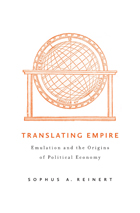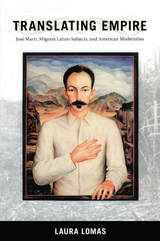
Historians have traditionally used the discourses of free trade and laissez faire to explain the development of political economy during the Enlightenment. But from Sophus Reinert’s perspective, eighteenth-century political economy can be understood only in the context of the often brutal imperial rivalries then unfolding in Europe and its former colonies and the positive consequences of active economic policy. The idea of economic emulation was the prism through which philosophers, ministers, reformers, and even merchants thought about economics, as well as industrial policy and reform, in the early modern period. With the rise of the British Empire, European powers and others sought to selectively emulate the British model.
In mapping the general history of economic translations between 1500 and 1849, and particularly tracing the successive translations of the Bristol merchant John Cary’s seminal 1695 Essay on the State of England, Reinert makes a compelling case for the way that England’s aggressively nationalist policies, especially extensive tariffs and other intrusive market interventions, were adopted in France, Italy, Germany, and Scandinavia before providing the blueprint for independence in the New World. Relatively forgotten today, Cary’s work served as the basis for an international move toward using political economy as the prime tool of policymaking and industrial expansion.
Reinert’s work challenges previous narratives about the origins of political economy and invites the current generation of economists to reexamine the foundations, and future, of their discipline.

Lomas challenges longstanding conceptions about Martí through readings of neglected texts and reinterpretations of his major essays. Against the customary view that emphasizes his strong identification with Ralph Waldo Emerson and Walt Whitman, the author demonstrates that over several years, Martí actually distanced himself from Emerson’s ideas and conveyed alarm at Whitman’s expansionist politics. She questions the association of Martí with pan-Americanism, pointing out that in the 1880s, the Cuban journalist warned against foreign geopolitical influence imposed through ostensibly friendly meetings and the promotion of hemispheric peace and “free” trade. Lomas finds Martí undermining racialized and sexualized representations of America in his interpretations of Buffalo Bill and other rituals of westward expansion, in his self-published translation of Helen Hunt Jackson’s popular romance novel Ramona, and in his comments on writing that stereotyped Latino/a Americans as inherently unfit for self-government. With Translating Empire, Lomas recasts the contemporary practice of American studies in light of Martí’s late-nineteenth-century radical decolonizing project.
READERS
Browse our collection.
PUBLISHERS
See BiblioVault's publisher services.
STUDENT SERVICES
Files for college accessibility offices.
UChicago Accessibility Resources
home | accessibility | search | about | contact us
BiblioVault ® 2001 - 2024
The University of Chicago Press









